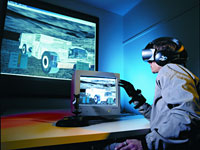|
||||||||||||||||||||||||||||||||||||||
| Minerals and Processing - MINE2810 | ||||||||||||||||||||||||||||||||||||||

Description This course shows the linkage between the different types of minerals and the means of concentrating the valuable metals they contain. The topics associated with geology include: an introduction to the nature and formation of mineral deposits and coal resources; geological setting, characteristics and genesis of major categories of metallic and non-metallic mineral resources, the nature and origin of coal-bearing sequences and the relevance of geological factors to their extraction and use; an introduction to stereographic projection analysis in understanding slope stability; laboratory study of hand specimens; exploration and resource assessment methods. In terms of minerals processing, the following topics will be covered: by a combination of breakage, sizing, separation, and dewatering processes, valuable components in mined material are concentrated into products suitable for subsequent hydrometallurgical or pyrometallurgical processing or direct utilisation. Minerals engineering processes are applied in the treatment of precious metal and gemstone deposits, base metal ores, heavy mineral beach sands, coal, and industrial minerals such as clays and aggregates. This introductory course provides a description of the principal unit processes and their applicability, and of the mineral properties and characteristics of mined materials on which they are based. On completion, the student will be able to carry out calculations relating to the characterisation of mined materials, carry out materials balance calculations for simple mineral processing circuits, and nominate appropriate processes for their beneficiation. For many of those processes you will also be able to determine equipment sizes for specified duties. Topics include: Rocks, minerals and ores. Grades, recoveries. Materials balances. Liberation. Comminution (crushing and grinding). Screening. Size classification. Dry and water-based separation processes. Dense media separation. Surface properties of liquids and solids. Froth flotation. Leaching processes. Screens and centrifuges. Flocculation and thickening. Filtration. Tailings disposal. A series of laboratory investigations forms part of the course.
Assumed Knowledge: PHYS1131 (or equivalent), MATS1010, MINE2500, GEOS1111
|
||||||||||||||||||||||||||||||||||||||


